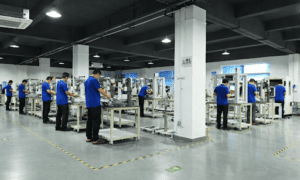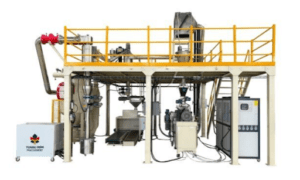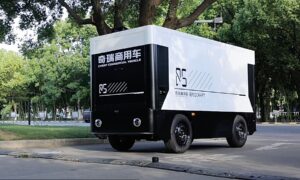The Netherlands is planning to limit ASML Holding NV’s ability to repair and maintain its semiconductor equipment in China, a move that could significantly impact Beijing’s ambitions to develop a world-class chip industry.
TakeAway Points:
- The Netherlands plans to limit ASML’s ability to service semiconductor equipment in China, impacting Beijing’s chip industry ambitions.
- The new restrictions may impede the technological advancement of companies such as Huawei and SMIC, given China’s dependence on ASML’s DUV lithography systems.
- Given that over half of ASML’s income comes from China, the decision—which was motivated by pressure from the US—may have a substantial impact on company sales.
Dutch Government’s Decision
According to sources familiar with the matter, the Dutch government under Prime Minister Dick Schoof is unlikely to renew certain ASML licenses to service and provide spare parts in China when they expire at the end of this year. This decision is expected to cover ASML’s top-of-the-line deep ultraviolet lithography (DUV) machines. The Dutch foreign trade ministry and ASML have declined to comment on the matter.
The Dutch government’s decision follows pressure from the United States. A senior Biden administration official mentioned that the US had raised the possibility of imposing unilateral measures on partner countries, including the foreign direct product rule (FDPR), if they did not align their China controls with the US. The FDPR allows American officials to control the flow of foreign products built with even a small amount of US-originated technology. The Netherlands, Japan, and South Korea are key countries for chip-making equipment, alongside the US.
Effects on the Chip Industry in China
China relies heavily on ASML’s immersion DUV lithography systems to advance its chip-making technology. The country has not yet developed similar equipment capable of producing cutting-edge semiconductors. Without ASML’s DUV gear, it will be increasingly difficult for Chinese technology companies like Huawei Technologies Co. and Semiconductor Manufacturing International Corp. to make significant advancements. These companies already lag two generations behind industry leader Taiwan Semiconductor Manufacturing Co. (TSMC).
China has never been able to purchase ASML’s most advanced machines, which use extreme ultraviolet (EUV) technology. EUV equipment is used to produce the most sophisticated chips in the industry, including those for Apple Inc.’s iPhones and Nvidia Corp.’s AI products. The inability to service and maintain DUV machines could render some of them inoperable as soon as next year, further hampering China’s chip-making capabilities.
ASML’s International and Business Relations
The decision to limit ASML’s ability to service its equipment in China is likely to impact the company’s sales, about half of which come from China. Machine maintenance is crucial for the daily operations of a chip-making plant. Equipment suppliers like ASML and Applied Materials typically station their engineers at the fabs operated by major clients, including TSMC, to resolve production line issues in real time. ASML Chief Financial Officer Roger Dassen mentioned in a post-earnings call in July that the company still has staff in the fabs of its Chinese customers, although some plants face more stringent restrictions.
The Biden administration has implemented sweeping export controls on China to limit the development of its chip sector for national security reasons. Blocking ASML from servicing its restricted machines in China will place the company under the same constraints as American peers, including Applied Materials Inc. The US had pressed the Dutch government for tighter restrictions on ASML’s China business earlier this year.



































